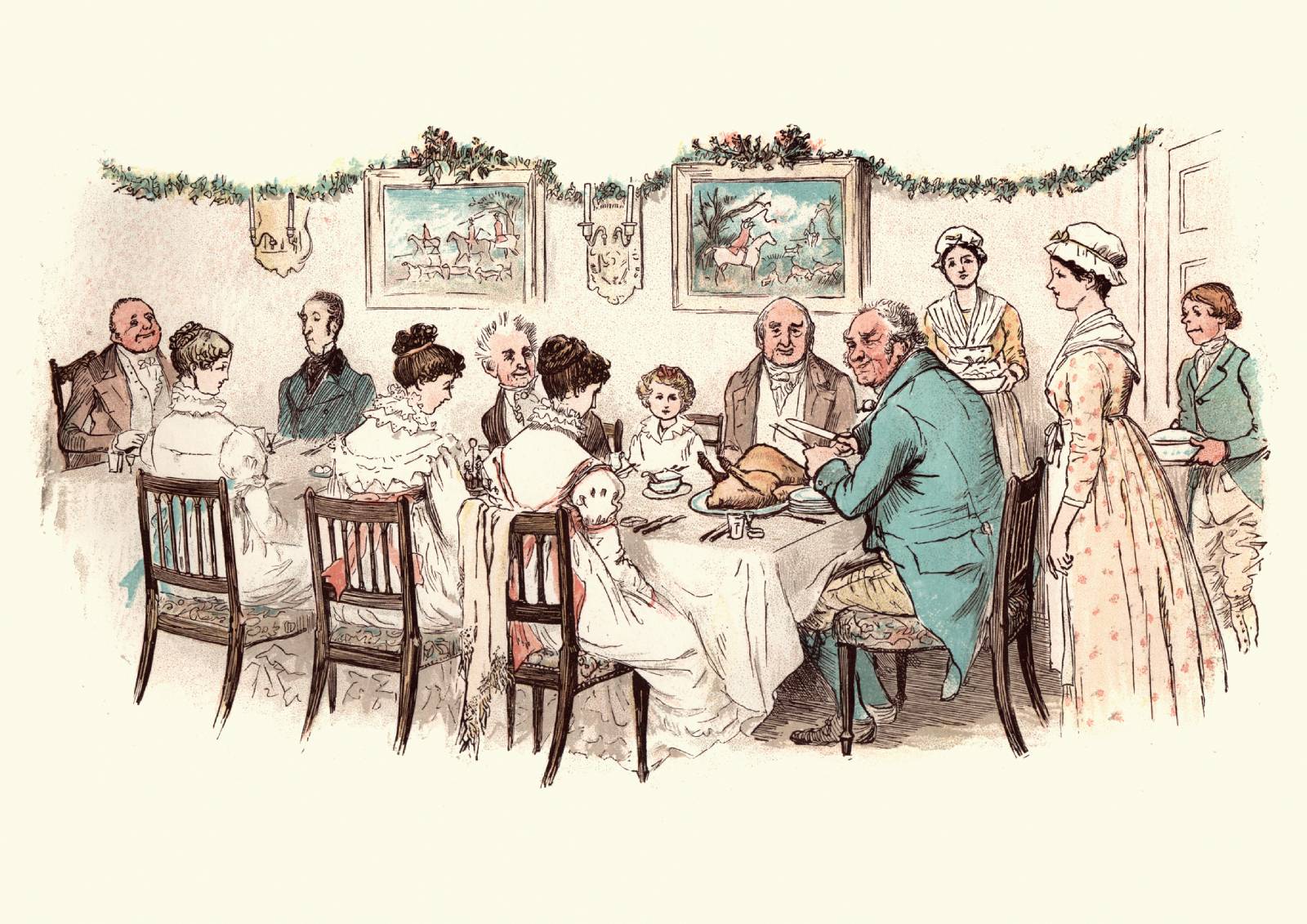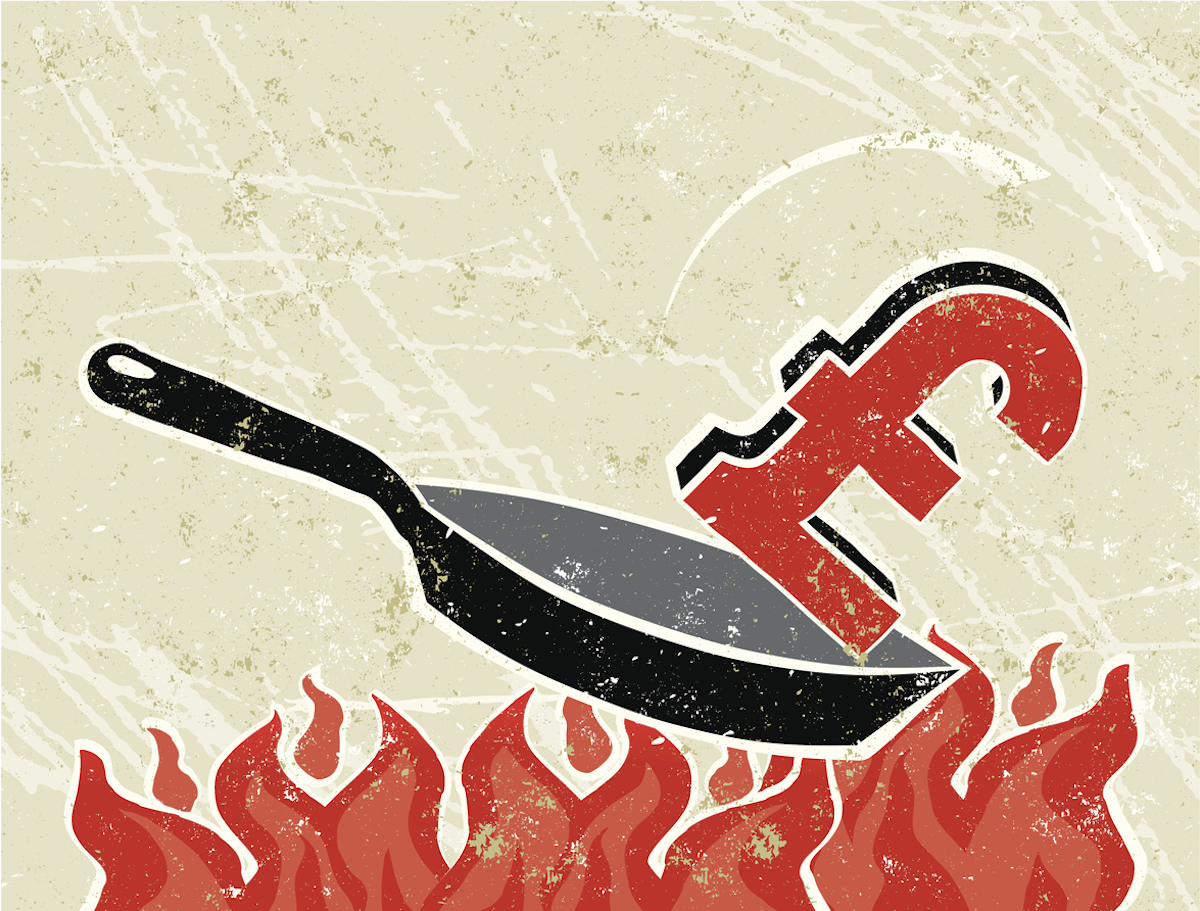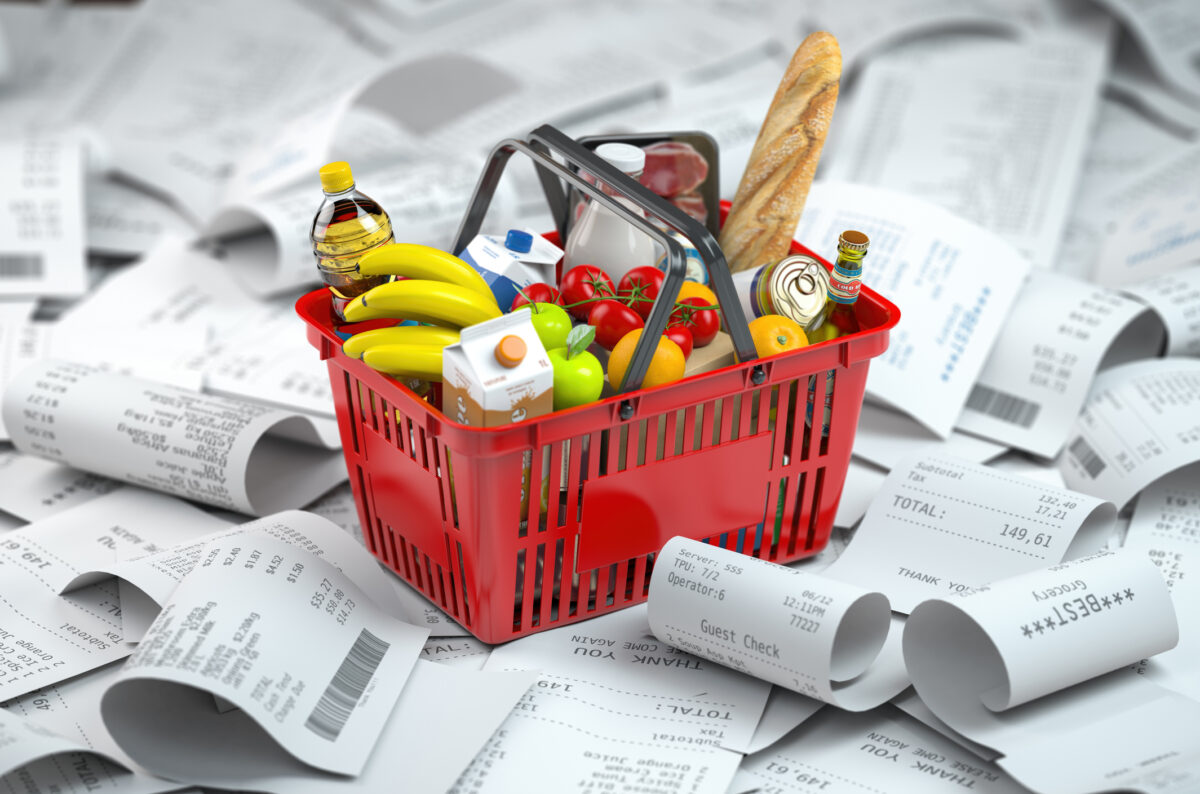Gestures of goodwill: retail, charity and community food initiatives supporting the vulnerable this Christmas

As we enter the festive season – a period so defined by food – one question brewing for many in the UK is whether they will be able to afford to put a meal on the table. Food insecurity has impacted millions across the country this year, making Christmas food initiatives more vital than ever. Prices have shot up throughout 2022, first reaching a 40-year high in July and record inflation levels of 14.7% in October. New research also shows nearly a third of shoppers have struggled financially this year, and larger numbers than usual said they would rather delay buying food ahead for Christmas to keep spending to a minimum.
Food banks have seen a higher demand for donations than ever before during this permacrisis. Between April and September this year, the Trussell Trust gave out 1.3 million emergency parcels, with half of this sum going to children alone. Some 320,000 people are also said to be using food banks for the first time, with one in five referrals to the charity being from working households.
To try and ease the burden of growing food insecurity across the country, supermarkets, charities, independent retailers, and community groceries have launched initiatives in time for Christmas. From price cuts and charity partnerships to community ovens and dinner pledges, there is a growing drive to support those in need throughout the holiday period.
Grocery spending schemes
Most supermarkets have been offering saving card schemes throughout the year, which help people use discounts on the food they buy around the festive period. While such initiatives are by no means unique to 2022, as they’re typically available every year, with more shoppers eager to cut down on spending during the season, they could prove to be more popular this year than ever.
Supermarket saving schemes on offer nationwide include:
- Co-op’s physical stamps scheme: a stamp book can be picked up at Co-op stores. Shoppers need to spend £48 in total throughout the year to fill the book. Once the book is filled with 48 stamps, customers can use the credit to make food purchases throughout December. When spending the money collected through the stamps, shoppers will be given an additional £2 off, allowing them to save up to £50 off a food shop.
- Asda’s Christmas Savings scheme: customers need to top up a loyalty card to receive a reward. The type of reward depends on the amount saved on the card, e.g. £15 bonus when saving £280 or more.
- Morrisons’ Christmas Collector Scheme: this is for customers signed up to the My Morrisons loyalty card, which enables them to receive discounts on meat, dairy and impulse buy items. The voucher can be spent between December 12 2022 and Tuesday 3 January 2023.
Discounted items
Several UK retailers have already brought in new schemes throughout the year to make nutritious food more affordable. Earlier in August, Iceland launched a Food Club Card – a flexible credit solution to help customers access short-term micro loans. In May, Tesco also launched its Better Baskets campaign, where a selection of high fibre, plant-based, low and no alcohol and low-calorie food and drink is offered on discount in clearly signposted sections of their stores.
When it comes to Christmas food, Aldi has launched its ‘Super Six Initiative’, where six Christmas essential fresh products are discounted. The selection of items changes every two weeks. Morrisons has decided to cut the price of over 50 of its own-brand Christmas products from the middle of November until the end of 2022 at all its 498 supermarkets, as well as online. The products on offer include mincemeat, cocktail prawns, frozen roast potatoes, mince pies, dry roasted peanuts, puff pastry sheets, Yorkshire Wensleydale with cranberries, cranberry sauce, sage and onion stuffing, and raspberry trifle. The supermarket’s cafés have also cut prices on its Christmas dinner menu – two courses will be on offer for £9.99 and three for £11.99.
Morrisons also partnered with Heinz to offer a free hot meal from 26 October to 27 November. Any customer in need of a hot meal simply had to ‘ask for Henry’ at any of the supermarket cafés around the country to receive a free hot jacket potato with baked beans.
Donations and charity partnerships
While Christmas adverts are typically a defining feature of the festive months, we haven’t seen one from every supermarket this year. Earlier this month, Co-op announced that instead of shooting a Christmas ad this year, it would use the money to partner with Your Local Pantry – a charity which runs community groceries across the country. The latest partnership with Co-op will help Your Local Pantry add a new 150 pantries to its network across the UK.
Chris Price, CEO of Pecan, which co-runs the Peckham Pantry with St. Luke’s Church and Your Local Pantry said: “It helps everyone if supermarkets [run this type of initiative]. I think it was Iceland’s Chief Executive who said we are no longer competing with the other main providers – what we’re seeing now is customers are leaving for the food banks.
“Many supermarkets are starting to recognise that [places like Your Local Pantry] can work with them to support their customers in hard times so that they can come back to them as well. And if people see that support, it’s going to really help retailers earn customer loyalty, which is so key for them.”
Food delivery service Deliveroo has also partnered with the Trussell Trust to roll out a new mobile food collection service – ‘Collecteroo’ – to help stock food banks ahead of Christmas. Donations of unopened and in-date food items will be collected from people’s homes in London, Manchester, Birmingham, Glasgow and Cardiff, and dropped off at nearby food banks which are part of the Trussell Trust network.
Deliveroo isn’t the only food delivery service running a Christmas campaign. Now in its third year, Just East is running its Winter Meal Appeal in partnership with charities FoodCycle, who distribute surplus foods out to those in need and Social Bite, which works to end homelessness in Scotland. The company is encouraging donations of £1, £5 or £10 when people make a food order on the app to support the delivery of 250,000 hot meals to those who are most vulnerable.
Other supermarkets are also launching their own support funds to help the country’s food insecure. Earlier this month, Aldi set up its Emergency Winter Fund. The £250,000 in the fund’s kitty will benefit local food banks, charities, and community groups in the UK.
‘Big Four’ supermarket Sainsbury’s also just launched its campaign – Nourish the Nation. The retailer is working with Comic Relief to fund initiatives addressing food insecurity, and helping to make nutritional and sustainable food options more affordable. Between 23 November and Christmas eve, Sainsbury’s is encouraging its customers to donate money when shopping for groceries on the supermarket’s website.
Competitor Tesco is also running its annual Food Collection campaign in its Express stores around the country between 28 November and 3 December 2022. Customers are encouraged to donate items to their local stores, or to purchase a pre-packaged donation bag of essential goods for those in need. The retailer says it will top up the value of donations made in stores during the Food Collection with a further 20% in cash. Furthermore, Tesco recently set up its ‘Give-Back Express’ pop-up store, which ran from 25 to 27 November, where shoppers were encouraged to buy and donate the 25 most needed items identified by Trussell Trust, FareShare and the supermarket giant.
Community-led initiatives
It’s not just supermarkets helping those in need. There are many community initiatives taking place too. As well as running the Peckham Pantry, Pecan also operates the Southwark food bank, which is part of the Trussell Trust food bank network. This year, the charity is running Give a Gift of Hope, an initiative set up to encourage people to donate money.
“Christmas is a very special time”, says Chris. “We work with an awful lot of families throughout the year and in all our programmes, and from this we know that children have amazing memories, and they remember their Christmases.”
“If their Christmas is great, it sets a positive memory for them for life. If it’s bad, because they can’t afford the food and the heating, then it sets a precedent in their life. For far too many people that’s going to have a negative effect on the rest of their life.”
Donations start at £15, which Pecan says can provide a food parcel for people struggling to afford food. Donations up to and above £50 can provide a family with a voucher which they can use to buy Christmas food of their choice, rather than being given a pre-packaged parcel. “If you come from a culture, which isn’t a Western European or British culture, then roast turkey, stuffing and all the trimmings might not be what you eat,” adds Chris. “It’s important to be able to give them the opportunity to spend their money on something different which can make their Christmas special.”
Pushing the campaign is more important than ever this year, says Chris, as the Southwark food bank is helping 20% more people than last year. “There’s a growth in the number of families coming through and children too”, he says. “Last month, about 40% of the people referred to us were children. It does seem to be families that are struggling the most.”
Another organisation working to get meals to those who need them this Christmas is non-profit Free My Meal. Founded in 2020 by music teacher Hayley Steere after the first lockdown, Free My Meal operates private Facebook groups where ‘cooks’ can offer their meals and ‘recipients’ can privately request them. The organisation currently runs over 70 UK and international groups with over 27,000 members. For the festive period this year, the charity has partnered with home cooking consultant and food waste advocate Kate Hall to launch the ‘Freeze My Meal’ campaign, to encourage people to prep, cook and freeze a Christmas dinner which can be given to recipients in need at a later stage. Participants can join a Free My Meal Facebook group or fill in the online form to pledge a dinner.
Some of the hardest hit by the cost of living crisis have been public sector workers. Many NHS employees are using food banks to feed themselves and their families. Niaz Caan, Executive Chef at Indian restaurant City Spice in London, is running a fundraising campaign to ensure NHS staff are well fed during one of the busiest periods for health workers. Between now and Christmas eve, Caan hopes to deliver 5,000 nutritious vegan and chicken biryani to nurses and health workers in as many hospitals as possible across London and the south east. City Spice will also cover the costs of making and delivering the food. As part of the campaign, Caan has also set up a fundraiser, with the aim of raising £13,800 to donate to local hospital charities and food banks across London.
“Following the past two years I think the NHS deserves better”, says Caan. “After all they did for us during the pandemic, hearing about our nurses turning to food banks, being underpaid, and working in buildings that are falling apart is shameful.”
He adds: “Whilst I can’t solve the problem, I hope that I can bring some joy and relief by delivering warm nutritious meals when they most need it and raise some funds to support staff and their families as we enter a very tough winter.”
Another community initiative being piloted for the first time this year is The People’s Oven at independent bakery Hearth in Hackney Wick, East London. Launching on 12 December, the bakery is offering pay-what-you-can access to its oven space for home bakers as well as anyone looking to batch cook and limit energy usage at home. The project is inspired by the notion of medieval communal hearths.
Initially Hearth’s space was supposed to be open to home bakers looking to experiment with their bread making skills in a deck oven, but founder Maisie Collins soon saw there was more value in opening the space to anyone who needs it. “After the [Russia-Ukraine] war started and the living conditions in the country continued to snowball, it became clear there was more we could offer from our space”, Collins told Food Matters Live.
While offering community meals is still a part of the bakery’s future plans, Hearth felt it could offer more support during a time when so many are struggling with the price of running an oven in their own homes.
“We wanted something more immediate,” says Collins. “The space is there for people who need to batch cook or just want to enjoy cooking in a warm space without having to worry about their bills.”
She adds: “The combination of being a part of a community, feeling at home in our space, the cathartic nature of cooking; it’s a small relief we can offer at this time.”
The initiative will initially run on a monthly basis, but this could increase depending on its popularity, says Collins. Following the launch of The People’s Oven, food charity Sustain’s The Real Bread Campaign has released an open call to any other bakeries across the UK intending to run a similar project. Collins also says a couple of warm banks are also being developed in Hackney, which she hopes will allow for a crossover of services and clients.
Collins acknowledges the importance of these initiatives at such a difficult time, but she admits it shouldn’t be down to retailers alone to launch them. “Access to good food and cooking is essential to health and equality. It should be available to everyone and if it isn’t, there needs to be better local government support.”
While the importance of such food initiatives is uncontested, their demand won’t disappear after Christmas. The cost of living crisis is likely to continue biting into 2023 and it’s uncertain what the next twelve months could hold for the UK’s most food insecure. As Chris explains, regular support is going to be crucial, especially in January and February, when food banks have lower stocks. “We’re going to need to make sure we are either able to get enough food coming in, or that we have the money available so we can buy enough goods, and support our team to deliver the right service,” he says.
For now, the main focus for supermarkets and community groups is to find ways to support people in time for the festive season. “It just helps to make Christmas that little bit more special for everyone”, Chris adds. “Whether they celebrate Christmas or not, it’s important for them to be able to recognise it as a time where celebration is going on. It’s the biggest [holiday] in the country and with the right help people can feel like they’re joining in and not locked out because of poverty.”








